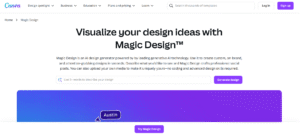AI Tools for Startups: 5 Must‑Have Picks
Are you wondering which AI tools for startups can give you a competitive edge in 2025? In this listicle, we explore five must‑have solutions detailing each tool’s core features, pros, and cons to help you make an informed decision. Moreover, you’ll find expert insights and an outbound link to guide your startup’s AI adoption journey.
1. Pipedrive’s AI CRM: Streamline Your Sales Pipeline
 Pipedrive’s AI‑driven CRM automates deal management from lead capture through closure, using a visual pipeline to keep your sales process crystal clear. Furthermore, its AI Sales Assistant analyzes activity and pipeline performance to recommend next steps and identify high‑priority leads. In addition, the built‑in AI email writer drafts personalized follow‑ups and proposals based on deal context, saving you hours of manual writing.
Pipedrive’s AI‑driven CRM automates deal management from lead capture through closure, using a visual pipeline to keep your sales process crystal clear. Furthermore, its AI Sales Assistant analyzes activity and pipeline performance to recommend next steps and identify high‑priority leads. In addition, the built‑in AI email writer drafts personalized follow‑ups and proposals based on deal context, saving you hours of manual writing.
Pros:
-
Intuitive visual pipeline that simplifies deal tracking.
-
AI Sales Assistant provides data‑driven recommendations.
-
Automated email composer speeds up outreach.
-
SmartApps suggests the best integrations for your workflow.
-
Over 400 third‑party integrations for end‑to‑end connectivity.
Cons:
-
No free plan; starts at $14 /user per month (annual billing).
-
Limited customer support on the base tier.
-
Some advanced AI features require Professional or higher plans.
2. ChatGPT: Supercharge Your Content Creation
 ChatGPT is a generative language model that helps startups craft blog posts, social‑media captions, pitch‑deck narratives, and even code snippets in seconds. Moreover, it supports iterative “prompt conversations,” which let you break tasks into ideation, structuring, drafting, and refinement phases for more strategic outcomes .
ChatGPT is a generative language model that helps startups craft blog posts, social‑media captions, pitch‑deck narratives, and even code snippets in seconds. Moreover, it supports iterative “prompt conversations,” which let you break tasks into ideation, structuring, drafting, and refinement phases for more strategic outcomes .
Pros:
-
Free tier available for casual experimentation.
-
Collegiate‑level writing and helpful coding advice.
-
Mobile app for on‑the‑go content creation.
-
Integrates with platforms like Slack, Zapier, and Microsoft Word.
Cons:
-
Knowledge cutoff in 2021 may lead to outdated information.
-
Does not cite sources, which can hinder trustworthiness.
-
GPT‑4 access requires a $20 /month paid plan.
-
Occasional “hallucinations” or incorrect facts.
3. Perplexity AI: Instant, Cited Research
 Perplexity AI delivers concise answers sourced from up‑to‑date publications, academic papers, and reputable websites, complete with transparent citations. Consequently, you can validate market trends, pull statistics for investor decks, and fact‑check claims—without manually browsing multiple sites .
Perplexity AI delivers concise answers sourced from up‑to‑date publications, academic papers, and reputable websites, complete with transparent citations. Consequently, you can validate market trends, pull statistics for investor decks, and fact‑check claims—without manually browsing multiple sites .
Pros:
-
Real‑time aggregation of diverse sources with citations.
-
Summaries of complex queries in plain language.
-
Supports deep‑dive research on niche topics.
Cons:
-
Output customization is limited to the tool’s default format.
-
Requires stable internet connection for live searches.
-
May surface pay‑walled content you cannot access.
4. Canva with Magic Design: Effortless Branding
 Canva’s Magic Design uses AI to auto‑generate on‑brand graphics—social posts, flyers, pitch decks—from text prompts or image uploads. Moreover, its Brand Kit enforces logos, colors, and fonts across templates, ensuring visual consistency even without a designer .
Canva’s Magic Design uses AI to auto‑generate on‑brand graphics—social posts, flyers, pitch decks—from text prompts or image uploads. Moreover, its Brand Kit enforces logos, colors, and fonts across templates, ensuring visual consistency even without a designer .
Pros:
-
User‑friendly interface for non‑designers.
-
Robust free tier with thousands of templates.
-
Enterprise‑grade privacy controls (Canva Shield).
-
Rapid iteration via AI‑driven template suggestions.
Cons:
-
Best AI features require Pro or Enterprise subscription.
-
Output can feel generic without manual tweaking.
-
Limited to visual assets, not suited for text content.
5. Notion AI: Organize and Optimize Knowledge
 Notion AI extends Notion into an all‑in‑one workspace assistant, summarizing meeting notes, rewriting business plans, and generating SOPs with GPT‑4 and Claude models. In addition, connectors to Slack, Google Drive, and GitHub surface organizational knowledge you didn’t know existed .
Notion AI extends Notion into an all‑in‑one workspace assistant, summarizing meeting notes, rewriting business plans, and generating SOPs with GPT‑4 and Claude models. In addition, connectors to Slack, Google Drive, and GitHub surface organizational knowledge you didn’t know existed .
Pros:
-
Seamless integration within your existing Notion workspace.
-
Supports multiple AI engines for varied perspectives.
-
Generates schemas and database entries automatically.
-
Enhances onboarding with AI‑summarized documentation.
Cons:
-
Advanced features locked behind paid plans.
-
Performance can lag on very large documents.
-
Occasional formatting inconsistencies when summarizing complex content.
To explore other AI tools redefining business automation, check out this list of Top 10 AI Tools Revolutionizing Workflow Automation in 2025.
For more in‑depth insights on startup AI adoption, see Pipedrive’s AI tools guide.





